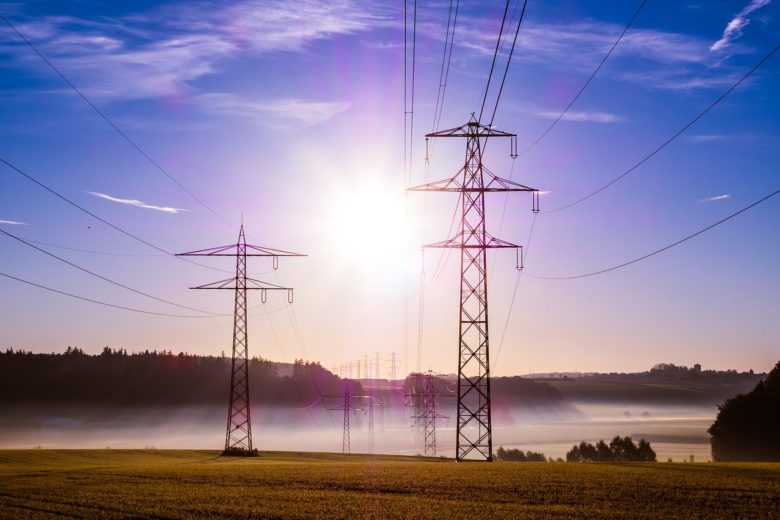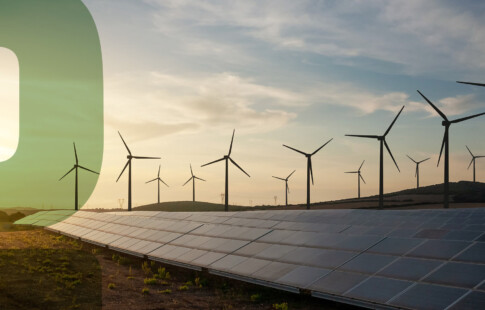
How Energy Deregulation and Privatization Could Impact Renewable Energy
We are reader-supported. When you buy through links on our site, we may earn affiliate commission.
Many recent news stories discuss how societies must become more dependent on renewable energy. Relying on fossil fuels is not sustainable, but investing in renewables helps ensure our planet’s future. However, evidence suggests that energy deregulation and privatization could both impact these resources.
Energy deregulation attempts to resist energy company monopolies by increasing the number of competitors in the marketplace. The process functions with a reverse auction, whereby energy providers aim to sell their offerings at the lowest possible rate. The energy goes through the existing infrastructure. The utility companies that own it transmit the power to customers, but they don’t set the prices paid.
Privatization occurs when the responsibility of supplying energy to the people who need it transfers from public-funded ventures, such as those operated by the government, to privately held companies. Let’s take a look at how deregulation and privatization in the energy market could influence renewable energy.
It Can Encourage Privately Held Companies to Team up and Seek Solutions
One way increasing privatization in the energy sector could help is if companies collaborate to investigate types of renewable energy. In one instance, Japan’s Tokyo Electric Power Company (TEPCO) and a Denmark-based power provider called Ørsted will work together on renewable energy projects associated with offshore wind.
TEPCO wants to develop 6-7 gigawatts worth of renewable energy projects in Japan’s deregulated market. It views this partnership with Ørsted as something that will kickstart that goal. The two companies signed a memorandum of understanding at the beginning of 2019. Depending on what happens due to the resultant pooled resources, the outcome could bring about another important development in renewable energy.
Countries around the world are experimenting with innovative ways to use renewable energy. For example, renewables comprised 54% of Nicaragua’s electricity generation in 2015. Figuring out how to make progress with any renewable energy project takes time and financial resources. When companies come together, it could become easier for these efforts to succeed.
Privatization’s Impact on Renewables Is Not Always Clear
Sometimes, it’s not immediately evident whether privatization’s impact on renewable energy would be positive or negative. In May 2019, the United Kingdom’s Labour Party announced plans to return to a national program after the region previously had privatization in place. People are split on what this means for renewable energy if the group’s intentions come to fruition.
Some people say the companies tasked with providing energy did not sufficiently invest in renewables. They believe returning to a national plan would pave the way for increased emphasis on it. However, others though moving forward with the Labour Party’s initiative would reduce the momentum of the United Kingdom’s growing dependence on renewables.
In Nevada, environmental groups opposed energy deregulation. They feared the market disruption would stall the state’s ongoing clean energy efforts. These examples emphasize how there are both pros and cons associated with energy deregulation and privatization.
A Rising Interest in Solar Within Some Deregulated Markets
In some areas of the United States that have energy deregulation, prices are getting higher than their historical averages. That trend means some people are especially interested in lowering their utility prices by installing solar equipment.Bret Biggart is the CEO of Freedom Solar, a company operating in Texas. In an interview with Globe St.com, he said that 85% of Texas residents live in deregulated markets, including people in the Dallas-Fort Worth metropolitan area and Houston. Biggart mentioned that although those two regions have had low electricity prices over the years, that’s changing due, in part, to population growth.
As solar energy becomes more affordable, many families decide that now is the time to at least explore what solar energy offers. Freedom Solar reportedly sees its fastest growth in deregulated markets, and Biggart expects continued prosperity for the foreseeable future. Bigart cited an existing federal tax credit as a factor encouraging many commercial entities to invest in solar.
Outside of Texas, organizations want to make it easier for households to invest in solar, even if they lack the financial ability to do so. GRID Alternatives Mid-Atlantic is a nonprofit working to help low-income families install solar panels in Washington, D.C., and three other states at no cost to the households. That option is undoubtedly appealing, especially considering that the average American family pays $1,430 per year to cover electricity costs.
Privatization Could Remove Some Renewable Energy Roadblocks
Puerto Rico gets the vast majority of its energy from imported fossil fuels, but that could change soon. In 2018, the U.S. territory announced it would privatize the energy sector. Some analysts believe that change could make it easier for Puerto Rico to restructure its energy infrastructure and increase reliance on renewables.
Masaō Ashtine is a researcher focusing on energy systems in the Caribbean. He thinks privatization will streamline the energy delivery process by removing the red tape often associated with public utilities. Moreover, Ashtine anticipates that privatization will make it easier for the energy industry to make plans to implement renewables.
However, some parties in Puerto Rico think the reverse is true. They argue that privatization may not be a good thing. They assert that people will pay higher prices but not see a subsequent increase in available services. People also don’t like that the privatization plans fail to account for community solar projects.
South Africa is another country interested in privatization. Its president views its state-owned power company as a barrier to renewable energy. The entity, known as Eskom, experienced a prolonged financial crisis, with its debt totaling $30.8 billion in September 2018.The financial struggles delayed some renewable power investments in the nation. However, the news of potential privatization caused alarm from some groups and individuals with interests in coal-fired power plants and the associated job losses.
Energy Deregulation and Its Link to Renewable Energy Policies
Some people are curious about whether state governments take past deregulation decisions into account when deciding to adopt renewable energy policies. Statistical models did not find supporting evidence for such a link.
However, data associated with California and Texas showed that state governments in those places used renewable energy programs to garner support for deregulation. According to those findings, there is a connection between deregulation and renewables, but not one that threatens the latter.
No Universal Answer
The coverage here highlights how deregulation and privatization do not automatically bring benefits to the energy industry and the customers that depend on it. However, such changes may facilitate more uses of renewable power. Many such initiatives are in the early stages, so it’s too soon to reach a definitive conclusion about their long-term impacts on adoption.
Share on
Like what you read? Join other Environment.co readers!
Get the latest updates on our planet by subscribing to the Environment.co newsletter!
About the author

Jane Marsh
Starting from an early age, Jane Marsh loved all animals and became a budding environmentalist. Now, Jane works as the Editor-in-Chief of Environment.co where she covers topics related to climate policy, renewable energy, the food industry, and more.





